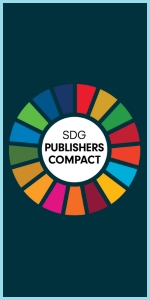HC23063 Full Text | HC23063PDF (646 KB) Open Access Article

Volume 15 Number 2 2023
HC23058 Full Text | HC23058PDF (646 KB) Open Access Article
What is already known: Transgender youth face barriers to accessing gender-affirming hormone therapy (GAHT) and services are experiencing an increase in referrals. Primary health led care is preferred by many transgender people. What this study adds: This paper describes the characteristics and gender-affirming health needs of young adults commencing GAHT in a primary care clinic at a tertiary education health service. High rates of non-binary youth indicate a need to better understand their healthcare needs.
HC23040 Abstract | HC23040 Full Text | HC23040PDF (718 KB) Open Access Article
HC23015Do patients with mental health and substance use conditions experience discrimination and diagnostic overshadowing in primary care in Aotearoa New Zealand? Results from a national online survey
 , Fiona Imlach, Helen Lockett, Cameron Lacey, Tracy Haitana, Susanna Every-Palmer
, Fiona Imlach, Helen Lockett, Cameron Lacey, Tracy Haitana, Susanna Every-Palmer  , Mau Te Rangimarie Clark and Debbie Peterson
, Mau Te Rangimarie Clark and Debbie Peterson
What is known about the topic: People with mental health and substance use conditions are at high risk of poor physical health, partly due to the quality of health care. What this study adds: Experiences of discrimination and mental health conditions distracting from physical health conditions (diagnostic overshadowing) happened more often for people with multiple diagnoses and highly stigmatised conditions. Interventions to ireduce discrimination and diagnostic overshadowing in primary care have the potential to improve physical health outcomes.
HC23015 Abstract | HC23015 Full Text | HC23015PDF (756 KB) | HC23015Supplementary Material (1.1 MB) Open Access Article
HC22082 Abstract | HC22082 Full Text | HC22082PDF (861 KB) | HC22082Supplementary Material (457 KB) Open Access Article
HC23035An area-based description of closed books in general practices in Aotearoa New Zealand
What is already known: Closed books are a problem for patients because they affect people’s ability to enrol in a general practice and hence access primary health care. They are a problem at the general practice level because they signal that the practice is at, or above, capacity. What this study adds: This study looks at how closed books are distributed across Aotearoa New Zealand and the characteristics of DHB districts and general practices that are associated with closed books.
HC23035 Abstract | HC23035 Full Text | HC23035PDF (1.3 MB) Open Access Article
HC22122 Abstract | HC22122 Full Text | HC22122PDF (791 KB) Open Access Article
HC23038Primary care experiences in the ‘Let’s test for HPV’ study: a qualitative analysis
 , John McMenamin, Debra Smith, Peter Sykes and Susan Garrett
, John McMenamin, Debra Smith, Peter Sykes and Susan Garrett 
What is already known: Evidence shows that HPV testing has a greater sensitivity for early detection of precancerous lesions than cytology. HPV tests can be delivered as vaginal self-swabs, which are more acceptable for under-screened women than clinician-taken samples and therefore can increase screening participation, especially for Māori and Pasifika. What this study adds: Clinicians favoured this new method of screening for cervical cancer and reported high levels of patient enthusiasm for self-swabbing. Lessons for nationwide roll-out included providing more clarity around some points in the pathway, providing an education package for the wider community and ongoing support for clinicians when problems arise.
HC23038 Abstract | HC23038 Full Text | HC23038PDF (728 KB) | HC23038Supplementary Material (1.3 MB) Open Access Article
What is already known: The term ‘green prescriptions’ has been used since the late 1990s to refer to written prescriptions for physical activity and/or diet; however, recently the term has been used to describe nature-based interventions. The multiple meanings have led to the misappropriation of research evidence, so we investigated the use of the term across time, geographic location and disciplines to provide guidance on its future use. What this study adds: We provide evidence that the term ‘green prescriptions’ is still predominantly used to describe written prescriptions for physical activity, and this is consistent across geographic continents. This use of the term also dominates in the health and medical literature, and is therefore most relevant to those who make such prescriptions.
HC23007 Abstract | HC23007 Full Text | HC23007PDF (794 KB) | HC23007Supplementary Material (253 KB) Open Access Article
What is already known: Pacific people have a higher prevalence of prediabetes which is a risk factor for the development of T2D. Primary care providers play a vital role in caring, and influencing the trajectory of risk, for people living with prediabetes. What this study adds: This paper provides important information on primary healthcare professional’s (including nurses, doctors, and allied healthcare professionals) knowledge of screening, diagnosing and management of prediabetes of Pacific patients in New Zealand.
HC23016 Abstract | HC23016 Full Text | HC23016PDF (696 KB) | HC23016Supplementary Material (251 KB) Open Access Article
HC22154 Abstract | HC22154 Full Text | HC22154PDF (668 KB) Open Access Article
What is already known: Many Pacific people are diagnosed with diabetes and keeping correct clinical records can help them and medical staff to provide better services for them. However, the recorded information in the Cook Islands was not clear and structured. What this study adds: Therefore, we have provided organised information about the rate of diabetes and people at risk of diabetes in the Cook Islands, and we discussed how updated information can help patients, medical staff, and the government.
HC21138 Abstract | HC21138 Full Text | HC21138PDF (772 KB) Open Access Article
HC22146 Full Text | HC22146PDF (646 KB) Open Access Article
HC22152Rainbow health in Aotearoa New Zealand – finally getting the attention it deserves?
HC22152 Full Text | HC22152PDF (679 KB) Open Access Article
HC23064 Full Text | HC23064PDF (714 KB) Open Access Article



